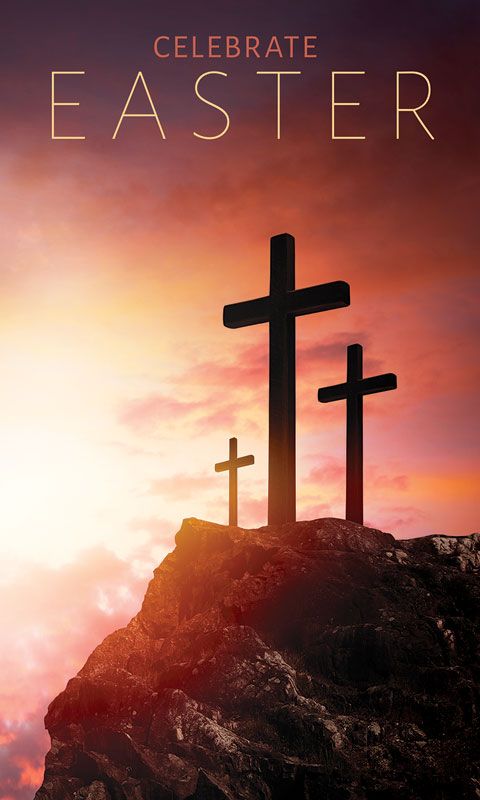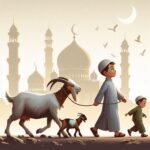Easter: Overview
Easter is one of the most important Christian festivals, celebrating the resurrection of Jesus Christ from the dead. It is considered the cornerstone of Christian faith, symbolizing hope, renewal, and eternal life.
Unlike fixed-date festivals, Easter is a movable feast, celebrated on the first Sunday after the full moon following the vernal equinox, typically falling between March 22 and April 25.
History of Easter
The history of Easter is rooted in the life, crucifixion, and resurrection of Jesus Christ.
Crucifixion and Resurrection:
According to the New Testament, Jesus was crucified on Good Friday and rose from the dead on the third day, which is celebrated as Easter Sunday.
This event signifies victory over sin and death, giving believers hope for eternal life.
Connection with Jewish Passover:
Easter coincides with the Jewish festival of Passover, as Jesus’ Last Supper was a Passover meal.
The timing emphasizes liberation and redemption, linking Christ’s resurrection with spiritual freedom.
Significance of Easter
Religious Significance:
Celebrates Jesus’ resurrection, affirming the Christian belief in life after death and salvation.
Encourages followers to live a life of faith, forgiveness, and moral values.
Spiritual Renewal:
Symbolizes new beginnings, hope, and transformation, encouraging self-reflection and spiritual growth.
Cultural and Social Significance:
Easter promotes unity, family bonding, and acts of kindness, becoming a festival of joy beyond strictly religious observance.
Easter Traditions and Celebrations
Easter is celebrated with a combination of religious observances and cultural customs:
1. Holy Week
The week leading up to Easter is called Holy Week, including:
Palm Sunday: Commemorates Jesus’ triumphant entry into Jerusalem.
Maundy Thursday: Marks the Last Supper of Jesus with his disciples.
Good Friday: Remembers Jesus’ crucifixion, observed with prayers and fasting.
2. Easter Sunday
Celebrates the resurrection of Jesus Christ.
Church services include sunrise prayers, hymns, and sermons emphasizing hope and salvation.
3. Easter Eggs and Symbolism
Easter eggs symbolize new life and resurrection.
Decorating eggs and participating in Easter egg hunts are popular cultural traditions, especially for children.
4. Easter Bunny
A folkloric figure representing fertility and new life, often associated with gift-giving and chocolate eggs.
5. Festive Foods
Special foods are prepared for Easter, including:
Hot cross buns, lamb dishes, cakes, and chocolate eggs.
Meals are shared with family and friends as part of communal celebration.
Easter Around the World
United States & Europe: Church services, parades, Easter egg hunts, and family feasts are common.
India: Celebrated mainly by Christians, with church masses, community prayers, and festive meals.
Australia & New Zealand: Sunrise services, parades, and outdoor egg hunts.
Philippines: Holy Week observances followed by Easter Sunday celebrations, including processions and feasts.
Impact on Daily Life and Society
Spiritual Reflection: Encourages introspection, forgiveness, and moral living.
Family and Community Bonding: Festivals strengthen relationships and social connections.
Cultural Exchange: Easter customs like egg hunts and festive decorations promote cultural awareness.
Economic Activity: Boosts local markets with chocolate, decorations, and gifts.
Charity and Kindness: Inspires acts of giving and service, reflecting Christ’s teachings.
FAQs about Easter
When is Easter celebrated?
On the first Sunday after the full moon following the vernal equinox.
Why are eggs associated with Easter?
Eggs symbolize new life, rebirth, and resurrection.
What is Good Friday?
The day commemorates Jesus’ crucifixion, observed with prayers and fasting.
What is the significance of the Easter Bunny?
Represents fertility, renewal, and joy, mainly as a cultural tradition.
Is Easter a public holiday in India?
Yes, in states with significant Christian populations like Goa, Kerala, and Tamil Nadu.
Conclusion
Easter is a festival of faith, hope, and renewal. Beyond religious significance, it encourages people to embrace love, compassion, and moral living. Through traditions like church services, egg hunts, and family gatherings, Easter continues to inspire spiritual reflection, social bonding, and cultural celebration across the world.








